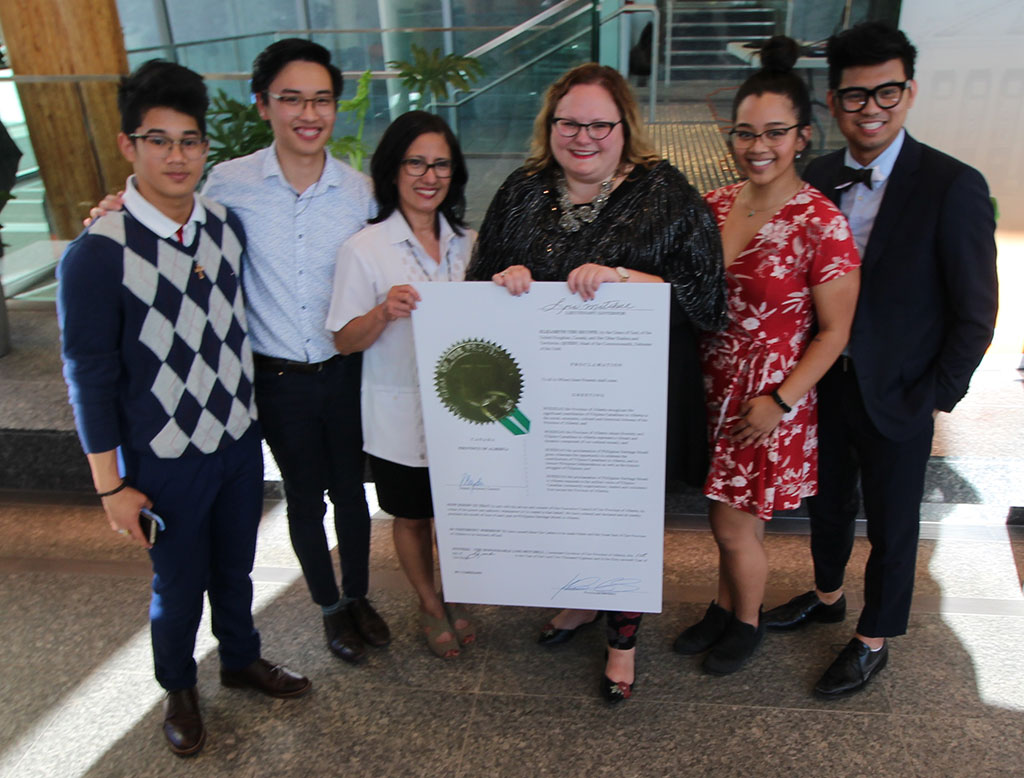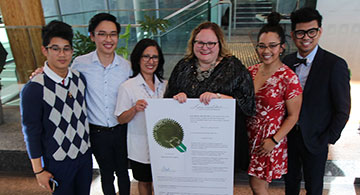As 2018 comes to an end, there were many events and highlights to look back on. Perhaps for Filipinos in Alberta, June 2018 was a memorable month. In June of this year, the Provincial government made the month of June “Philippine Heritage Month” in perpetuity. This means that starting this year, and for every June gpong forward, Filipinos can showcase their heritage and culture. It’s also a big deal because it was also done to recognize the contribution of Filipinos in Alberta. This is a legacy that the community can pass on for generations. The process in making Philippine Heritage month in Alberta also showcased the positives within our community, such as the passion to put our community on the mainstream map, but more importantly it also showed that we can work together and unite for a better good.

For many workers and migrants, this year was also special. This year was the realization of the $15 minimum wage that was promised by the NDP government during the election. The $15 minimum wage was very significant. For workers, this means that they have stronger buying power. It alleviates the stress of living from paycheck to paycheck. On the other hand, it also became a precedence for other provinces to give their citizens a just wage. Contrary to what the other political party was saying, higher minimum wage did not create unemployment. On the contrary, Statscan released its statistics indicating that the unemployment in the province is 6.7%, the lowest since 1970.
The adjustment of the Alberta Immigrant Nominee Program (AINP) was also significant. Through consultations with stakeholders, the AINP was changed to provide migrants who are already working here and wanted to stay with easier access to a pathway to permanent residency. The two important changes to the program was to remove the income threshold requirement and to lower the language requirement. While many more immigrant policy changes are needed, the Federal government must now step up and follow suit.
On September 18, the City of Edmonton passed a motion that makes the City a “Sanctuary City” or “Access without Fear” City. This means that for migrants who lost their status when their permit expired or refugee claimants that were denied their applications, they do not have to be scared about walking the streets of Edmonton or accessing municipal services. It may not mean much because significant services such as education and health care are provincially regulated, however this designation showed that there was a need and that Edmontonians can pursue access to services from the Province.
Our community and generally all the residents of Alberta can be joyful for the “gifts” that we received from the Provincial Government this year. However, many Filipinos also worry about the future of our families back home. At the beginning of the year, the Tax Reform for Acceleration and Inclusion (TRAIN) Law was implemented. It created an impact on the take-home pay of Filipinos, prices of goods and services, and spending and consumption. TRAIN will put a lot of pressure on migrant workers and families here in Canada. Many will be pushed to take on another job or take longer working hours to be able to subsidize the expenses of their families back home.
In addition, the government of President Duterte signed the Social Security Act of 2018. It is a bicameral approval of the bill imposing the mandatory SSS for all OFWs. The mandatory SSS membership imposed a monthly contribution rate to go up to 12% or Php 2,400 per month in 2019. From then on, it is expected to gradually increase reaching 15% by 2025. Prior to this, there was another government bill through POEA called “Governing Board Resolution No.04”. The bill ordered the inclusion of returning OFWs in its compulsory insurance policy costing an added US$144 from the pockets of migrant workers. The bill also allowed private sector to manage the insurance policy thus the Philippine government washing its hands of any responsibilities should something happen to a Filipino migrant worker abroad.
On December 4, President Rodrigo Duterte approved the second round of diesel and gasoline excise tax hikes during the Cabinet meeting. During the meeting, Duterte’s economic managers pushed for the hike to be implemented on January 1, 2019. Aside from economic sues, his war on drugs continues. Many were killed with impunity while no major arrests were made in terms of drug lords.
With upcoming elections both here and in the Philippines and with the Filipino diaspora, people are anxious and weary about their future both in the Philippines and in Alberta. However these reflections also help them shape their course of actions in the New Year.


